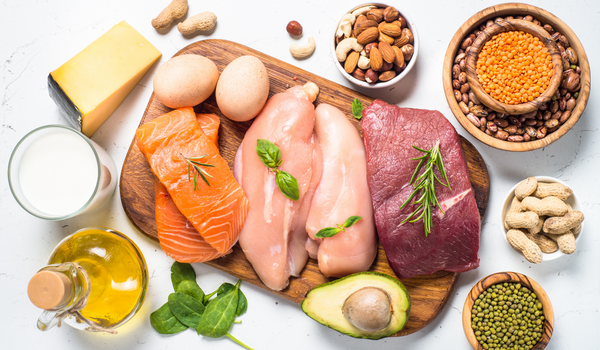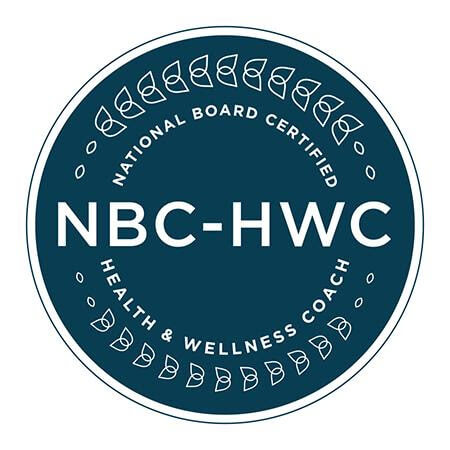Should we be concerned about elevated LDL-C when on a low carb diet?
- Nadia Kawash
- Food
A few clients have come to me asking about LDL cholesterol and if they should be concerned when they test it and realized that it has become elevated after following a low carb diet that their doctor had recommended, they went on it to assess if they should be put on statins due to some concerns of family history and metabolic dysfunction. The diet’s purpose was to help them improve their health across several markers which it did but it also caused their LDL-C to be elevated which went against what they were trying to accomplish!
I would like to begin by explaining that although LDL-C has been given the reputation of being “bad” cholesterol, when in fact it is “good” cholesterol. Lipoprotein (a) is correlated with atherosclerosis because the body is doing what it exactly is meant to be doing in the body – bandaging the areas (endothelial lesions) that have been damaged and inflamed by:
- consuming a poor diet
- high blood pressure
- high insulin + elevated blood sugar
- lack of antioxidants
- lack of nutrients
- poor consumption and imbalance of omega 3-6-9
- elevated stress
What is important to understand is that LDL-C is a good marker to assess cardiovascular disease when it is accompanied by other factors:
- Insulin resistance
- Elevated blood sugar
- Elevated Blood pressure
- High triglycerides
- Increased abdominal fat
and not to be assessed as a marker on its own.
We must always look at LDL-C with the markers mentioned above to understand the real story behind the elevation.

If someone is truly worried about their cholesterol markers, then it is very important to do these tests mentioned below because they are more accurate in assessing CVD. The tests are:
- Calcium Score Test
- NMR LipoProfile Test that checks for small + dense particle size.
Lately, we have been hearing a lot about low carb and ketogenic diets and how effective they have been on people with metabolic issues. It has helped with:
- Weight loss
- Better BMI (body mass index)
- Improved Abdominal circumference
- Lower Triglycerides
- Lower Blood Glucose levels
- Improved Insulin
- Lowering CRP- a marker for inflammation
- Improved HDL-C
So why is it that their LDL-C gets elevated when someone is following such a diet?
The reason is that these diets are low in carbs and high in fat and protein. When you lower your carbs, the body automatically loses water. We begin to lose weight. Over a period of time, the body no longer has the quick conversion of carbs to fuel. The body goes looking for energy to fuel the body. It will head over to the protein and fat to begin breaking it down.
I need to explain a little of the science to help understand WHY?. The body’s metabolism converts carbohydrates, protein and fat into energy. Any excess of these nutrients will be stored as fat in the body (not the good fat that we are seeking.)
- Carbs get broken down immediately into glucose hence are a fast-burner fuel and release 4 calories per gram.
- Protein gets broken down into amino acids but takes a longer time hence more efficient than carbs releasing as well 4 calories per gram.
- Fat gets broken down into Fatty acids but is a low-burner fuel hence giving off more energy 9 calories per gram.
The body prefers fat and protein over Carbohydrates to produce more efficient energy.
Here is the explanation
When the body breaks down fat into fatty acids, these need to be transported around the body by a shuttle bus known as “LipoProteins”. They drop off and pick up things on their way as they move through your bloodstream. They have a small amount of cholesterol attached to them as part of their structure. These fat globules can never be allowed to roam around on their own or else they will cause a lot of gooeyness and will be very damaging. A diet that is higher in fat will therefore always increase the lipoprotein fat transport particles.
The conclusion of all this is when we are reducing our carb intake and increasing our fat intakes like when on the Atkins, paleo and low carb diet. We therefore should expect an increase in LDL-C, unless we pay attention to our diet and stick to the principle of moderation with protein, dairy, and all the other clean fats like nuts, seeds, avocado, and clean oils. Eating a rainbow of vegetables raw and cooked and lowering your fruit intake to a minimum as well. The opposite of what all these diets advocate which is high-fat content.
Don’t deprive yourself. Moderation in your food intake is key to a healthy lifestyle.
*Pls do not forget the pillars of a healthy lifestyle: Diet- exercise- prioritizing sleep- stress reduction and JOY.
Should we be concerned about our LDL if it goes up, but all the rest of the markers are in a good place? The answer to that is no because it has to do with the diet you are following. I would just reduce the clean fat intake to moderation – watch out for any hidden sugars you are consuming. If it remains elevated after all these changes, then I would look into checking your thyroid markers, especially if you are a woman. Research shows a connection between elevated LDL and thyroid in women. That will be another topic for another day.
Hope this explanation was helpful and if you need anything clarified for you on other issues pls let me know by dropping me an email and I will do my very best to help explain It to you.
Always looking out for your health
Small Changes to Healthier “U”
Facebook
Twitter
Pinterest
LinkedIn
Print







